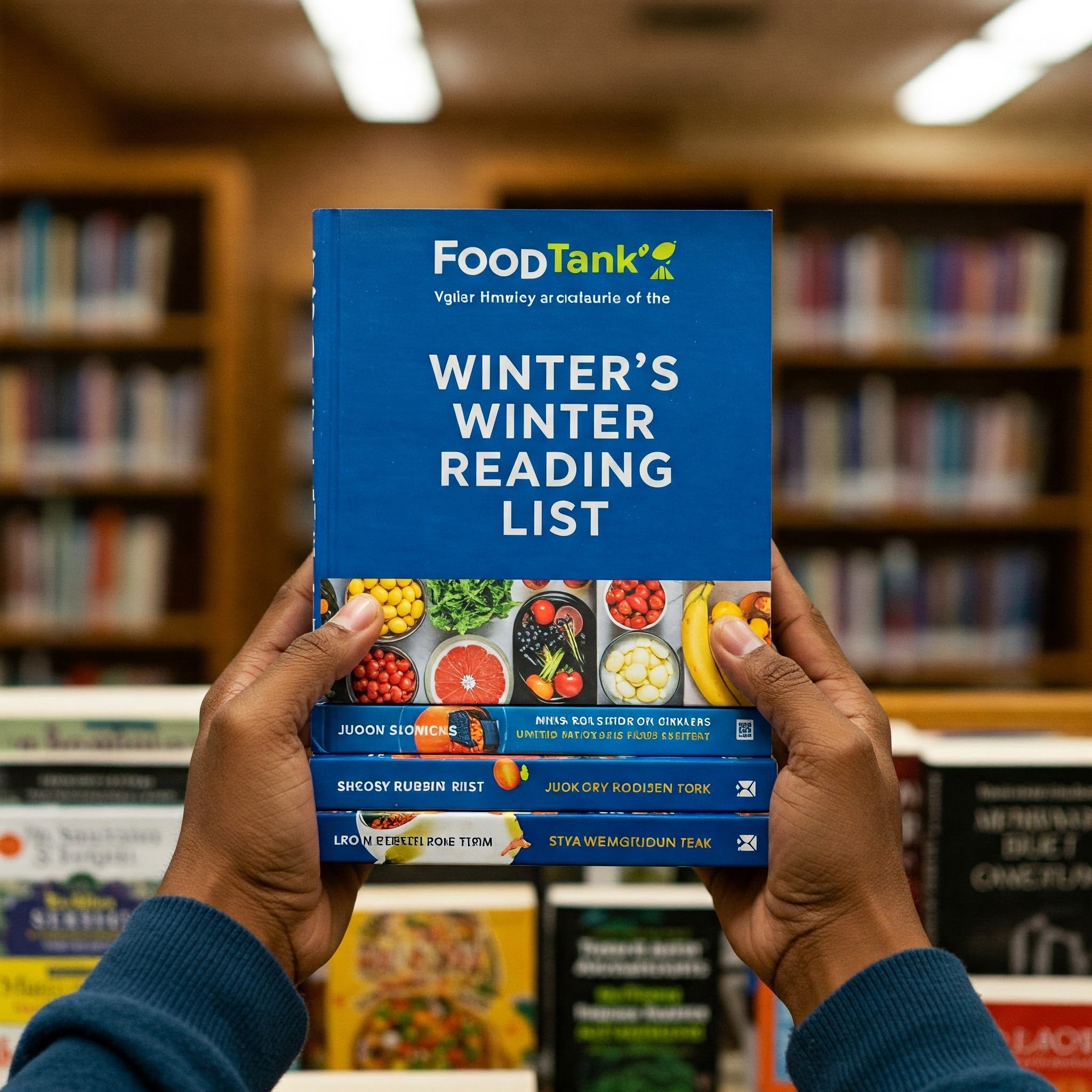Check Out Books from Food Tank’s Winter Reading List on the United States Food System
Sharing some great books from Food Tank’s winter reading list that provides more information and context to the food system in the United States.
Three hundred years ago, Europeans spent a third of their total household expenditure on bread, but today, that’s less than 1 percent. By asking a simple question—why?—Peter Scholliers’s “A History of Bread” explores what this staple food can tell us about food policy, consumption patterns, and technology.
Over the years, there have been many attempts to reform farming and food policy in sub-Saharan Africa, but many have not succeeded. William G. Moseley asks a simple question—why?—in his book “Decolonizing African Agriculture.” He finds the culprit to be colonial models of agriculture science, and argues for a place-based agroecological approach.
New Orleans, a city close to my heart, has long been famous for its amazing food culture. In “Insatiable City,” Theresa McCulla asks a simple question—why?—and, through menus, cookbooks, newspapers, postcards, and photos, she tells a rich tale of race, power, social status, and labor.
The books on Food Tank’s winter book list this season approach the food system with the ultimate word of curiosity: why?
Why should we be skeptical of tech industry leaders who promise new innovations that combat cascading food and climate crises? Why do philanthropic dollars continue to flow to programs rooted in Green Revolution-era principles that don't improve quantity or quality of food? Why have only a few very large corporations come to dominate agriculture?
Although, I should say, it’s not always so simple to ask “why.”
Just the title of Mariana Chilton’s book, “The Painful Truth about Hunger in America: Why We Must Unlearn Everything We Think We Know—and Start Again,” reminds us that asking why can sometimes mean accepting that we do not fully understand the world around us, or that we might think we know something about which we’re actually completely wrong.
Asking “why?” means questioning authority, but also being willing to listen and learn. It means being brave, and it also means being humble. These are all qualities we need to embrace, with all their contradictions, in our work to build a more equitable, sustainable food system!
So, with the help of these 25 books, let’s ask why—and learn some answers:
“A History of Bread: Consumers, Bakers and Public Authorities since the 18th Century” by Peter Scholliers
“Chile, Clove, and Cardamom: A Gastronomic Journey Into the Fragrances and Flavors of Desert Cuisines” by Beth Dooley and Gary Paul Nabhan
“Chop Chop: Cooking the Food of Nigeria” by Ozoz Sokoh (Forthcoming March 2025)
“Countering Dispossession, Reclaiming Land: A Social Movement Ethnography” by David E. Gilbert (Forthcoming March 2025)
“Decolonizing African Agriculture: Food Security, Agroecology and the Need for Radical Transformation” by William G. Moseley
“Eating and Being: A History of Ideas about Our Food and Ourselves” by Steven Shapin
“Food Activism Today: Sustainability, Climate Change, and Social Justice” by Donald M. Nonini and Dorothy C. Holland
“Insatiable City: Food and Race in New Orleans” by Theresa McCulla
“Julia Child's Kitchen: The Design, Tools, Stories, and Legacy of an Iconic Space” by Paula J. Johnson
“Modern Chinese Foodways” edited by Jia-Chen Fu, Michelle T. King and Jakob A. Klein
“Planning Sustainable and Resilient Food Systems: From Soil to Soil” by Julia Freedgood
“Raw Deal: Hidden Corruption, Corporate Greed, and the Fight for the Future of Meat” by Chloe Sorvino
“Reversing Deforestation: How Market Forces and Local Ownership Are Saving Forests in Latin America” by Brent Sohngen and Douglas Southgate
“Seeding Empire: American Philanthrocapital and the Roots of the Green Revolution in Africa” by Aaron Eddens
“Slow Noodles: A Cambodian Memoir of Love, Loss, and Family Recipes” by Chantha Nguon with Kim Green
“The Crop Cycle: Stories with Deep Roots” by Shane Mitchell
“The Nature of Nature: The Metabolic Disorder of Climate Change” by Vandana Shiva
“The Proof Is in the Dough: Rural Southern Women, Extension, and Money Making” by Kathryn L. Beasley
“Titans of Industrial Agriculture: How a Few Giant Corporations Came to Dominate the Farm Sector and Why It Matters” by Jennifer Clapp (Forthcoming February 2025)
“The Painful Truth about Hunger in America: Why We Must Unlearn Everything We Think We Know—and Start Again” by Mariana Chilton
“The Regenerative Agriculture Solution: A Revolutionary Approach to Building Soil, Creating Climate Resilience, and Supporting Human and Planetary Health” by Ronnie Cummins and André Leu
“The Serviceberry: Abundance and Reciprocity in the Natural World” by Robin Wall Kimmerer
“The Youth Climate Uprising: From the School Strike Movement to an Ecophilosophy of Democracy” by David Fopp, Isabelle Axelsson, Loukina Tille
“Waters of the United States: POTUS, SCOTUS, WOTUS, and the Politics of a National Resource” by Royal C. Gardner
“What a Farmer Wants You to Know about Food” by Dennis Bulani
Check out more details on all these books by CLICKING HERE.

